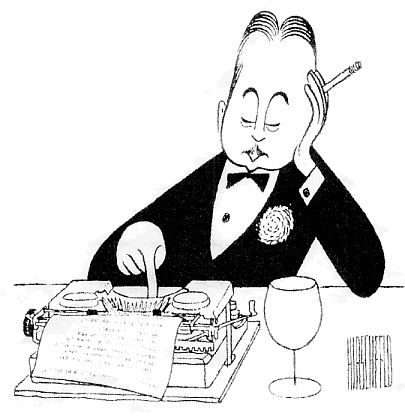“The student should stop at once if signs of dizziness appear,” says the book, but it does not say whether the symptoms are to be looked for in the student himself or in the rest of the family.
The author does the public a rather bad turn when he suggests to student speakers that, under stress, they might use what is known as the “orotund.” The orotund quality in public speaking is saved for passages containing grandeur of thought, when the orator feels the need of a larger, fuller, more resonant and sounding voice to be in keeping with the sentiment. Its effect is somewhat that of a chant, and here is how you do it:
The chest is raised and tensed, the cavities of the mouth and pharynx are enlarged, more breath is directed into the nasal chambers and the lips are opened more widely to give free passage to the increased volume of voice.
The effectiveness of the orotund might be somewhat reduced if the audience knew the conscious mechanical processes which went to make it up. Or if, in the Congressional Record, instead of (laughter and applause) the vocal technique of the orator could be indicated, how few would be the wars into which impassioned Senators could plunge us! For example, Mr. Thurston’s plea for intervention in Cuba:
“The time for action has come. (Tensing the chest.) No greater reason for it can exist tomorrow than exists today. (Enlarging the cavities of the mouth.) Every hour’s delay only adds another chapter to the awful story of misery and death. (Enlarging the cavities of the pharynx.) Only one power can intervene—the United States of America. (Directing more breath into the nasal chambers.) Ours is the one great nation of the New World—the mother of republics. (Elevating the diaphragm.) We cannot refuse to accept this responsibility which the God of the Universe has placed upon us as the one great power of the New World. We must act! (Raising the tongue and thrusting it forward so that the edges of the blade are pressed against the upper grinders.) What shall our action be? (Lifting the voice-box very high and the edges of the tongue blade against the soft palate, leaving only a small central groove for the passage of air.)”
The aspirate quality, or whisper, is very effective when well handled, and the book gives a few exercises for practice’s sake. Try whispering a few of them, if you are sure that you are alone in the room. You will sound very silly if you are overheard.

